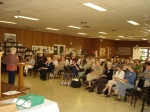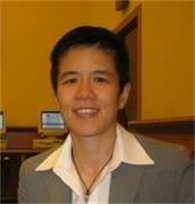http://www.thesylvaherald.com/html/aclu_is_investigating_legality.html
By Nick Breedlove
The North Carolina branch of the American Civil Liberties Union Monday launched an investigation into Jackson County Sheriff Jimmy Ashe’s activities in connection with a May 16 seat belt checkpoint in the Tuckasegee area that included officers from Immigrations and Customs Enforcement.
The Jackson County Sheriff’s Office requested ICE participation in that checkpoint, ICE Public Relations Officer Ivan Ortiz-Delgado said in a Tuesday e-mail to The Herald.
“The Sheriff’s Office in Jackson County requested the participation of ICE in a traffic checkpoint located in Tuckasegee,” the e-mail said.
Ortiz-Delgado said the checkpoint was part of a statewide campaign “conducted under N.C. Governor’s Highway Safety Initiative. While the principal purpose of these campaigns is to increase seat belt and child safety seat usage, it also often results in the identification of criminal violators. As a law enforcement agency, ICE regularly works with our city, county and state partners in operations that enhance public safety.”
The Herald is seeking records regarding who has been detained and any charges resulting from that checkpoint, however, those records were not released by press time.
As of Tuesday afternoon, the Sheriff’s Office had not responded to The Herald’s request for comment.
“ICE officers interviewed approximately 50 individuals and identified 15 foreign-born criminals who did not possess proper immigration documents to be in the country legally,” Ortiz-Delgado said of the May 16 checkpoint. “The criminal convictions of these persons ranged from multiple traffic violations and driving while impaired offenses to domestic violence. In addition, two persons who had been previously deported from the United States and re-entered illegally were identified.”
Those 15 persons were taken into ICE custody and transported to its Charlotte facility he said.
“Of the 15 arrested, 12 were subsequently released under Orders of Recognizance and/or placed into the Alternatives to Detention program. The remaining three were booked into custody and are presently detained by ICE,” he said.
An ACLU attorney told The Herald Tuesday the investigation regarding the Sheriff’s Office was launched following complaints.
“We launched the investigation after we received complaints from community members and drivers who had gone through that the checkpoint the Jackson County Sheriff’s Office did on May 16 in collaboration with ICE,” said ACLU-N.C. Legal Foundation racial justice attorney Raul Pinto.
The ACLU is seeking information from anybody who has gone through a sheriff checkpoint recently, May 16, or otherwise, he said.
“We began to hear from folks that the licenses of Latino drivers were being scrutinized much more than those of Caucasian drivers,” he said.
For that reason, the ACLU is seeking information on local checkpoints, Pinto said.
“We’re looking for anybody who has been through a checkpoint who can attest to the procedures of the sheriff’s office,” Pinto said. “By their accounts we can determine whether the sheriff is adhering to the checkpoint law.”
Pinto said checkpoints must adhere to the federal constitution and must not be in the same location.
“We want to hear from people who have seen checkpoints placed in their neighborhoods repeatedly,” he said.
The ACLU’s request for assistance from those who have been through such checkpoints appears in both English and Spanish at the end of this report.
The ACLU-NCLF got calls before the Asheville Citizen-Times published its report of the deportations and continues to receive calls from people who have been through Jackson County Sheriff’s Office checkpoints, Pinto said.
According to North Carolina law, checkpoints must adhere to several requirements, including that an individual officer can’t use discretion as to who has to produce identification.
The statute reads: “… but no individual officer may be given discretion as to which vehicle is stopped or, of the vehicles stopped, which driver is requested to produce driver’s license, registration, or insurance information.”
The involvement of ICE makes the checkpoint’s purpose unclear, Pinto said.
“There’s no clear mandate on whether ICE can be involved in checkpoints,” he said.
What the law does state is that checkpoints to ascertain immigration status are only allowed within 100 miles of an international border, he said.
“When you bring ICE into what’s supposedly – what we understand to be a seat belt checkpoint – it really muddles the purpose into something that might be unconstitutional,” he said.
A 2009 study by the Southern Poverty Law Center, titled “Under Siege: Life for Low-Income Latinos in the South” cites “police checkpoints in predominately Latino areas are a common complaint.”
Another study, from the Pew Hispanic Center, found that nearly one in 10 Hispanic adults — 8 percent of native-born U.S. citizens and 10 percent of immigrants — reported being stopped in the past year by police or other authorities who asked about their immigration status.
ACLU seeks information on suspected local racial profiling
The American Civil Liberties Union of North Carolina has issued the following statement in both English an Spanish:
“The ACLU of North Carolina is investigating claims of racial profiling during the execution of checkpoints by the Jackson County Sheriff’s Office. Checkpoints are only allowed for limited purposes, and the manner in which these checkpoints are conducted often violates the civil rights of Latinos and other racial minorities. People who have been affected by this policy may contact Raul Pinto at the ACLU of North Carolina at 919-834-3466.”
“La Unión Americana de Libertades Civiles de Carolina del Norte (ACLU por sus siglas en inglés) está investigando quejas de discriminación racial por parte de la Oficina del Alguacil del Condado de Jackson en la ejecución de retenes policiales. La ley permite retenes solamente para propósitos limitados, y la manera en la cual estos retenes son ejecutados a menudo violan los derechos civiles de Latinos y otras minorías raciales. La gente que haya sido afectada por esta practica puede contactarse con Raul Pinto de la ACLU al 919-834-3466.”




